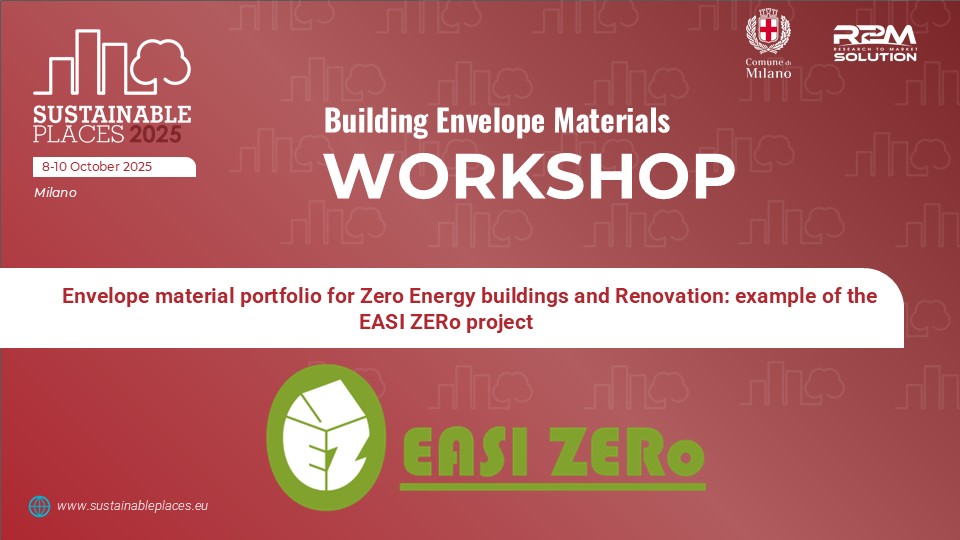Envelope material portfolio for zero energy buildings and renovation: Example of the EASI ZERo project

Deep renovation is defined as a one-step process to realize the full potential of a building to reduce its energy demand, based on its typology and climatic zone. It achieves the highest possible energy savings and leads to very high energy performance, with the remaining minimal energy needs fully covered by renewable energy. The current annual deep renovation rate stands at only 0.2% on average in the EU. This figure must drastically increase to reach 3% by 2030 and be maintained up to 2050 to reach the goal of 2050 climate neutrality defined for the EU. Therefore, there is a strong need for efficient and replicable solutions that would accelerate these deep renovation practices and help achieve 2030 and 2050 goals. We need replicable systems to allow rapid and wide deployment all over Europe to reach a global target above 2%.
The focus of this session, is on presenting a portfolio of easy to-install envelope components for the near-zero energy balance and CO2 emissions of buildings in order to provide a holistic solution for the total envelope, including façades, roof, openings and even renewable energy generation and storage. This includes part of EASI ZERo development on bio-sourced and recycled insulation components, low-carbon paints and plasters, and lightweight, zero-emission frames for windows and doors. The products of material portfolio are developed for respecting the reduction of embodied energy and CO2 emission, improved thermal resistance for the insulating materials and reduction of installation time. The challenge is then testing prototypes at laboratory and wall scale, to test the upscaling of component and material performances. Building-scale numerical modeling will allow to determine the effect of the retrofit assemblies on the building energy consumption and demonstrate how the product of the material portfolio reduce then energy consumption at building scale, respecting the target value of maximal 50 kWH/m2/year. The environmental assessment of EASI ZERo product will start at material scale and simulated at building scale, with the challenging target of limiting the carbon emission to 4 kgCO2/m2/year. In this session, we aim to give you a general overview of the EASI ZERo project, a Horizon Europe funded project, highlighting the project objectives and methodologies developed.
